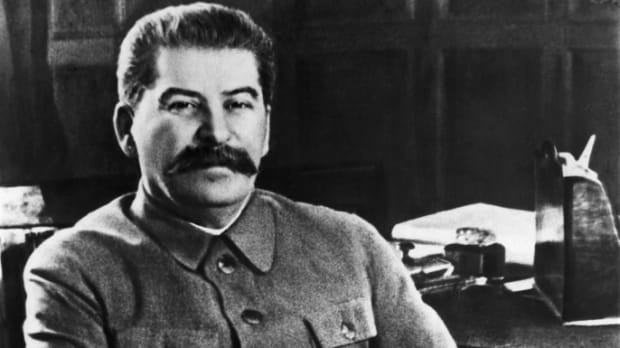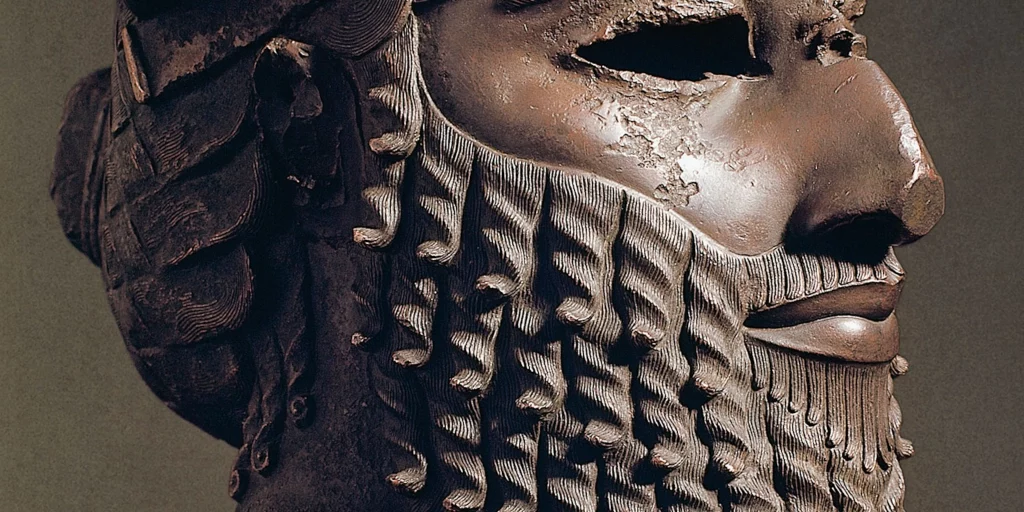On March 26, 1997, the San Diego police received a disturbing call from someone who had just discovered 39 dead bodies in a mansion located in a luxurious gated community.
As the police descended on the mansion it soon became clear that within this nondescript house, something sinister had taken place. Laid out before them were the bodies of 39 individuals, all of whom were dead and some with plastic bags over their heads.
It turns out that all had formerly been members of a group that called themselves Heaven’s Gate, a religious group that was led to believe in salvation through suicide. But how did a disparate group of college-educated people come to believe in something so outlandish?
Through their charismatic leader, Marshall Applewhite.
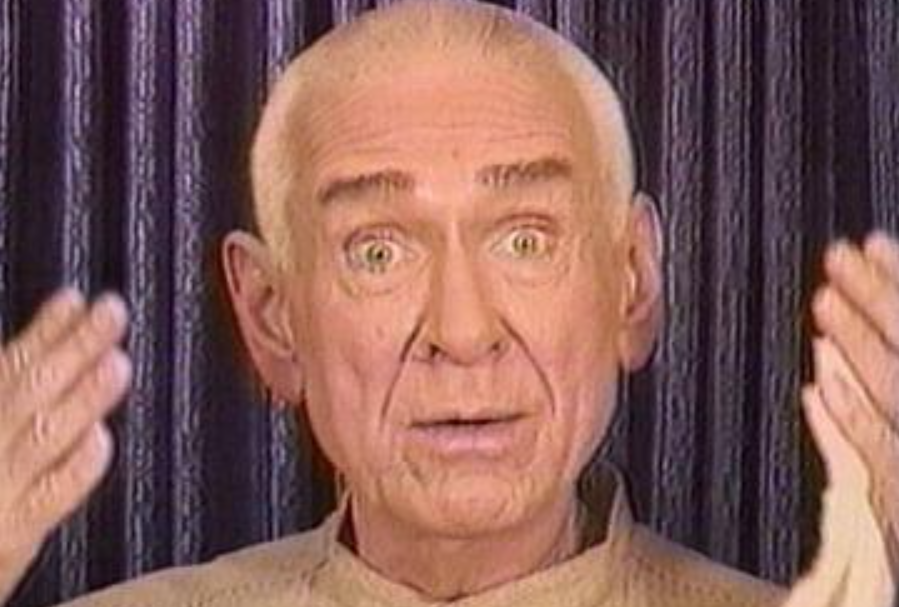
The Tenets of Heaven’s Gate
Although he was born Marshall Applewhite, he was known to his followers as Do. According to his teachings, he, along with his co-founder, Ti, were “destined to be martyred and resurrected.”
By raising themselves from the dead, they told their followers that they would thus prove that death could be overcome, paving the way for other mortals to gain entrance into the afterlife. But while this may sound very similar to Christian beliefs, where it differs is how the believers would reach heaven.
Instead of an angel coming down to whisk them away, members of Heaven’s Gate would be taken for a ride in a UFO spaceship. This would fly them up to heaven.
Ti and Do’s mission on earth, then, was to do, “all they can to relate this truth as accurately as possible so that when their bodies recover from their ‘dead’ state (resurrection) and they leave ([in] UFO’s) those left behind will have clearly understood the formula.”
Thus, Heaven’s Gate was a mixture of both biblical and extraterrestrial influences. The cult specifically drew on parts of Revelations, particularly Revelations 11:3-12, which says:
“And I will give power unto my two witnesses, and they shall prophesy . . . And when they shall have finished their testimony, the beast that ascendeth out of the bottomless pit shall make war against them, and shall overcome them, and kill them. And their dead bodies shall lie in the streets of the great city . . . And after three days and a half the spirit of life from God entered into them, and they stood upon their feet . . . And they ascended up to heaven in a cloud.”
Revelations 11:3-12
Applewhite regarded both himself and his partner as quite literally being the two witnesses mentioned in the passage. By dying and rising again from the dead, Applewhite believed that he would be the one to prove that death could be overcome.
The Life of Marshall Herff Applewhite
But Marshall was not always the charismatic leader known as Do. Growing up, Marshall was the son of a Presbyterian preacher. He grew up in and around the Presbyterian church of the town of Spur, Texas.
Born on May 17, 1931, Marshall lived what anyone would describe as a normal life. That is, he attended college, got married, and even served for two years in the Army.
Later on, he tried his hand at acting in New York City. But, despite his charisma and talent as an orator, he wasn’t able to make it work.
He then took a job teaching music at the University of Alabama but was forced to leave after it was discovered that he had had a sexual relationship with one of his male students. Despite the setback, Marshall, with his natural charisma, was soon able to land a job at the University of Houston, where he became director of music.
It wasn’t until the 1960s that Marshall Applewhite’s life began to hit a rough patch. He divorced his wife and suddenly vacated his position as music director.
According to Applewhite himself, this was a very emotionally turbulent time. It was in this period that the visionary leader known as “Do” began to emerge. And that had a lot to do with perhaps the most important woman in his life – Bonnie Nettles.
Becoming Ti and Do
When Marshall Applewhite met Bonnie Nettles in a Houston hospital in 1972, it was perhaps the most important encounter of his life. Nettles, like Applewhite, was going through a tough period in her life. Both were in their mid-forties. Nettles was separated and going through a divorce.
Applewhite was already divorced and had been struggling to find a partner while experimenting with several homosexual and heterosexual relationships. He had even admitted himself to a psychiatric ward at one point to deal with the “problem” of his homosexuality.
With Nettles, though, Applewhite had no such problem. Their relationship was purely spiritual. And together they began to carve out a distinct new belief system within the broad spectrum of New Age schools of thought.
One of the main elements of their belief system was the importance of abstinence – particularly regarding sex. But their abstinence consisted of far more than just foregoing sexual relations.
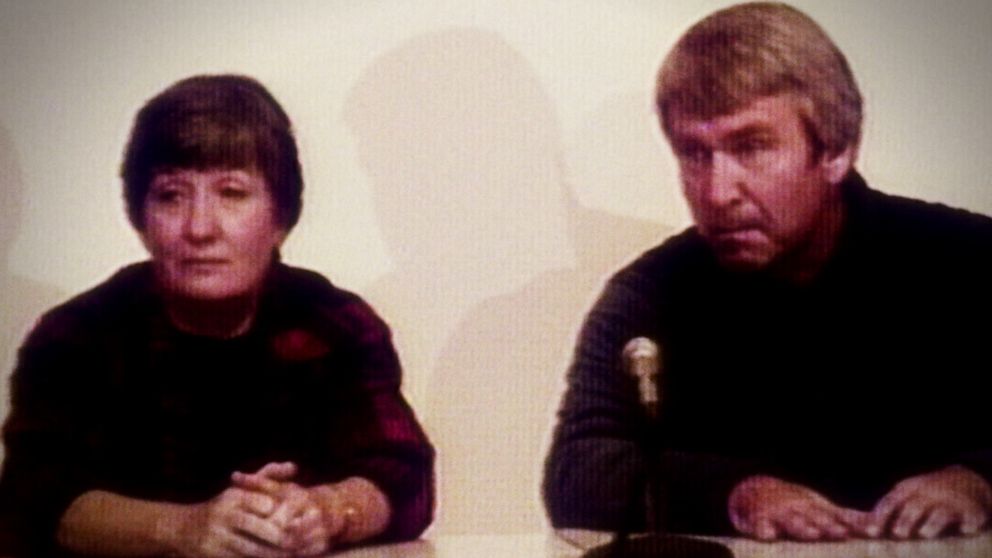
VCI Entertainment
Heaven’s Gate followers were instructed to give up things like alcohol and caffeine as well. They were even told to cut ties with their family and friends. Only by giving up all of one’s earthly connections, could a person be “lifted up.”
From 1972 to 1975, Nettles and Applewhite wandered around exploring various religious beliefs. Ultimately, they concluded that they themselves were essentially God and Jesus reincarnated.
They believed that anyone who devoted themselves to their teachings could transform into an extraterrestrial and ascend to the “Next Level.” This was also known as the “Father’s Kingdom.”
By 1975, Applewhite and Nettles had changed their names to Do and Ti and continued traveling around the country attracting members through lectures. Pretty soon, parents began complaining to the police about the fact that their children were joining what was quickly becoming a religious cult.
Ti and Do preached that one could reach “The Next Level” by simply following the tenets of abstinence and social isolation. In the early days of the cult, the idea of suicide was not yet on the table. People seemed drawn to a religion that offered a new alternative to established religions.
That attraction helped the group to grow quickly. During the sect’s first year of existence, there were just 20 members.
The group was nomadic, traveling around the country and often camping as they moved around. Pretty soon the group reached nearly 300 members, many of whom had responded to the Heaven’s Gate website, which the group created in the early days of the internet.
At this point, the group was viewed as strange, with its members typically sporting bowl cuts and black clothing. However, the group’s beliefs were still relatively harmless. But that was all about to change with the death of the group’s co-founder – Ti.
The Death of Ti Changed Heaven’s Gate
The death of Ti in 1985 radically changed Applewhite and his style of leadership. Rules became stricter. After castrating himself, Applewhite encouraged the other male members to do the same.
Eventually, eight members went through with it. This is also when Applewhite began preaching the need to leave one’s “bodily vehicle” for good in order to go with the UFOs to their heavenly kingdom.
And then, Marshall learned about the Hale-Bopp comet, which was expected to pass over Earth’s atmosphere in 1997. After investigating everything he could about the Hale-Bopp comet, Applewhite determined that the moment of its passing overhead would be the group’s opportunity to finally leave their earthly bodies for good and transcend to the “Next Level.”
His conviction stemmed from a theory circulating at the time that the comet tail was hiding a UFO. And that it was trailing the comet on purpose because it wanted to be seen.
Convinced that the moment was drawing near, Applewhite prepared his followers for the final journey.
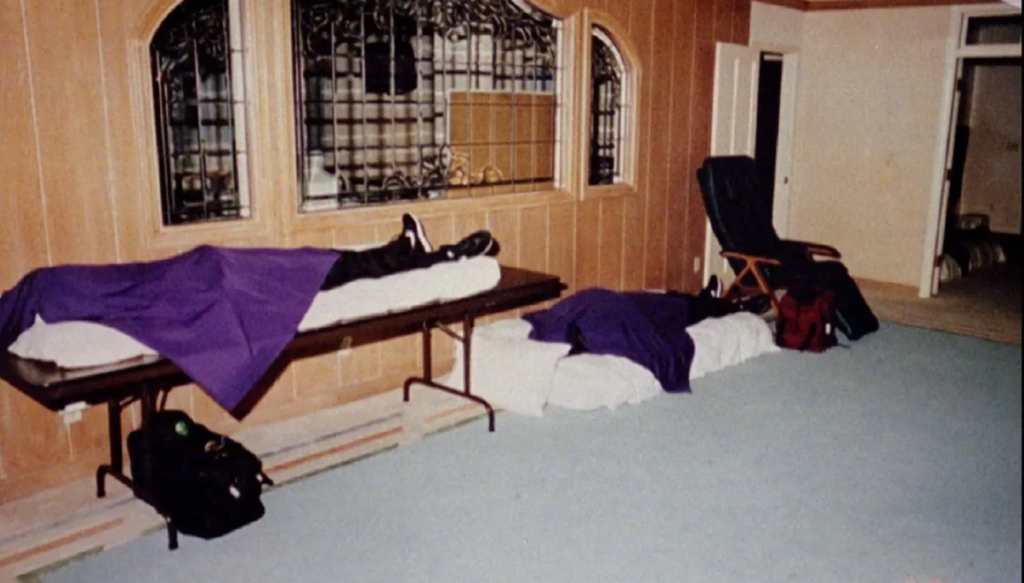
Each group member, including Applewhite himself, left behind a video message in which they said their final goodbyes. In all of the videos, they seemed excited, even giddy about the prospect of dying. One member even stated, “It’s the happiest day of my life.”
It was also one of their last.
The week of the suicide, the group went out for a last dinner together at a Marie Callender’s restaurant. They all ordered the same thing – turkey pot pie, iced tea, and cheesecake with blueberries.
When it came time for the act itself, there was apparently no coercion. It proceeded calmly and deliberately over the course of three days. In three separate shifts of 15, the members each ingested applesauce containing lethal doses of phenobarbital and vodka before lying down.
They were all wearing the same Nike sneakers and were wrapped in purple garments. However, not all of the Heaven’s Gate members committed suicide. The act required assistance, which meant in the end there were an estimated nine people who survived to pass along news of what had happened.
Those few survivors are the only remaining witnesses to Marshall Applewhite’s final act of madness.
